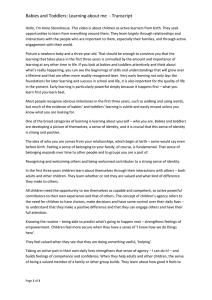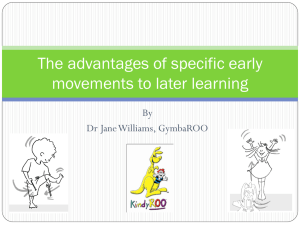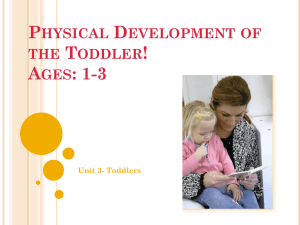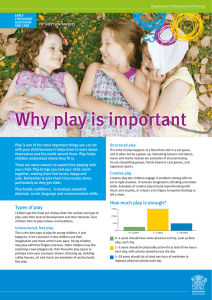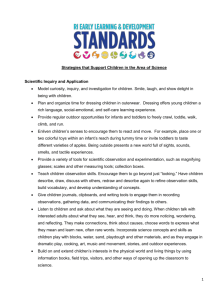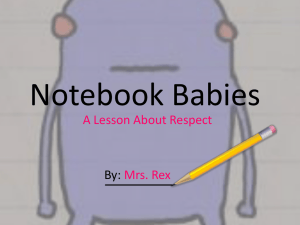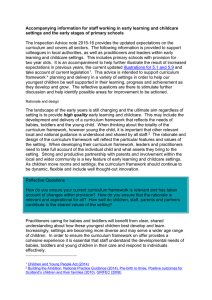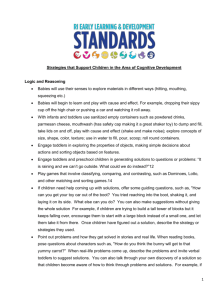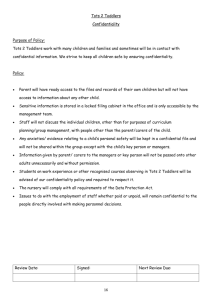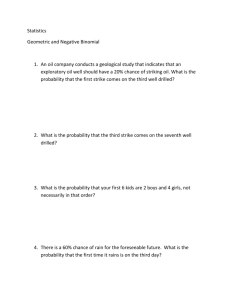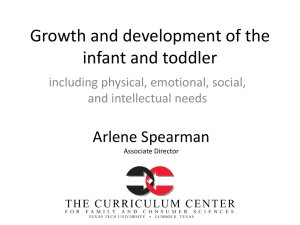Babies and toddlers: Learning about others transcript
advertisement
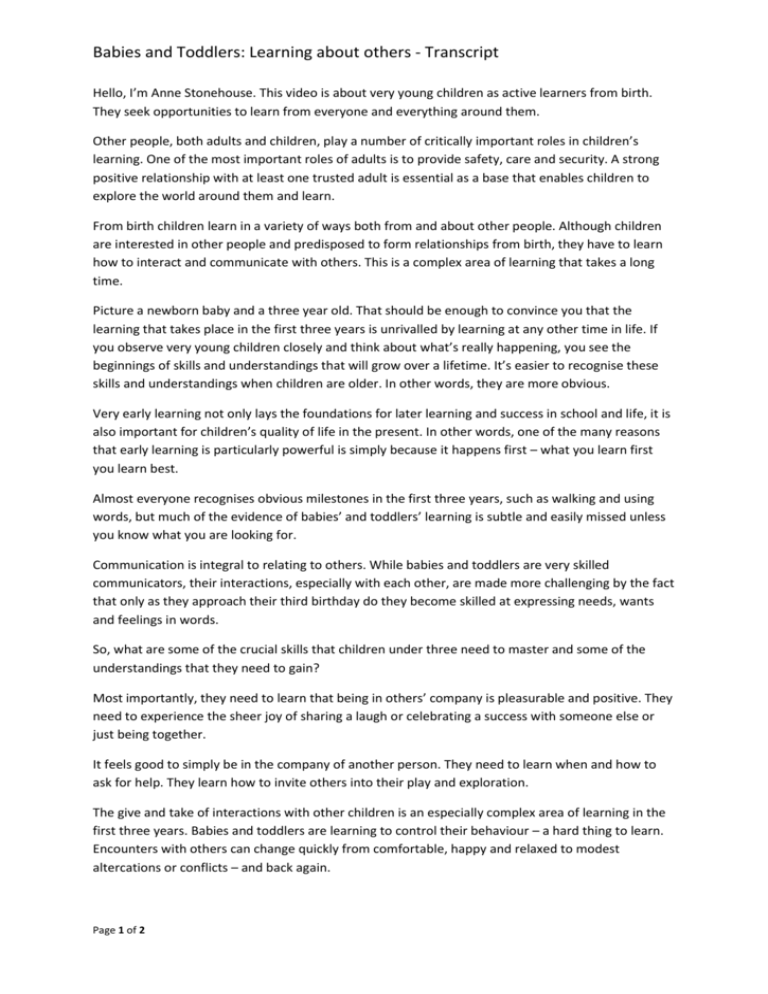
Babies and Toddlers: Learning about others - Transcript Hello, I’m Anne Stonehouse. This video is about very young children as active learners from birth. They seek opportunities to learn from everyone and everything around them. Other people, both adults and children, play a number of critically important roles in children’s learning. One of the most important roles of adults is to provide safety, care and security. A strong positive relationship with at least one trusted adult is essential as a base that enables children to explore the world around them and learn. From birth children learn in a variety of ways both from and about other people. Although children are interested in other people and predisposed to form relationships from birth, they have to learn how to interact and communicate with others. This is a complex area of learning that takes a long time. Picture a newborn baby and a three year old. That should be enough to convince you that the learning that takes place in the first three years is unrivalled by learning at any other time in life. If you observe very young children closely and think about what’s really happening, you see the beginnings of skills and understandings that will grow over a lifetime. It’s easier to recognise these skills and understandings when children are older. In other words, they are more obvious. Very early learning not only lays the foundations for later learning and success in school and life, it is also important for children’s quality of life in the present. In other words, one of the many reasons that early learning is particularly powerful is simply because it happens first – what you learn first you learn best. Almost everyone recognises obvious milestones in the first three years, such as walking and using words, but much of the evidence of babies’ and toddlers’ learning is subtle and easily missed unless you know what you are looking for. Communication is integral to relating to others. While babies and toddlers are very skilled communicators, their interactions, especially with each other, are made more challenging by the fact that only as they approach their third birthday do they become skilled at expressing needs, wants and feelings in words. So, what are some of the crucial skills that children under three need to master and some of the understandings that they need to gain? Most importantly, they need to learn that being in others’ company is pleasurable and positive. They need to experience the sheer joy of sharing a laugh or celebrating a success with someone else or just being together. It feels good to simply be in the company of another person. They need to learn when and how to ask for help. They learn how to invite others into their play and exploration. The give and take of interactions with other children is an especially complex area of learning in the first three years. Babies and toddlers are learning to control their behaviour – a hard thing to learn. Encounters with others can change quickly from comfortable, happy and relaxed to modest altercations or conflicts – and back again. Page 1 of 2 Babies and Toddlers: Learning about others - Transcript Through playing with others, babies and toddlers learn to negotiate, to compromise, to begin to understand some basics about their own and others’ rights and responsibilities. Children learn to be with others by having the opportunity to interact with them. They need to have encounters. Most babies and toddlers have to learn to cope with other children being nearby, being interested in what they are doing – sometimes contributing in positive ways and at other times interfering. The presence of a trusted adult often is enough to help children learn to be with other children. Often an adult has to intervene to ensure that children learn constructive ways to assert themselves, respect their own and others’ rights and resolve conflicts. Beginning in infancy, child learn from their own experience of being cared for about how to care for others. The aim is for them to learn to be welcoming, generous and caring – and to initiate interactions in gentle and appropriate ways. A key dimension of a sense of belonging is learning that you can help others and that others can help you. Children learn a lot from other children. And even very young children gain satisfaction from teaching others. Learning about others continues throughout life. Essentially it’s about learning how to belong, to be a member of a family and other groups, to be comfortable with diversity and difference, to have a sense of belonging and to contribute to others’ sense of belonging. Strong relationships with others are the cornerstone of not only belonging but also of identity. In addition they are the foundation for being a confident learner and explorer of the world. Page 2 of 2

